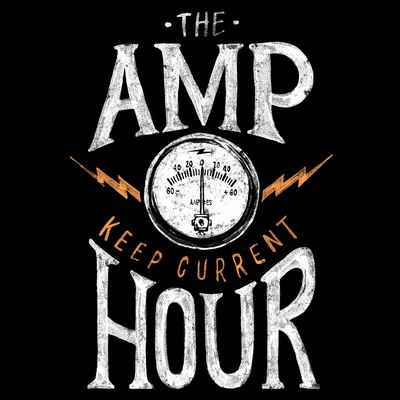Chris Gammell and Dave Jones' voices span the chasm of thousands of miles each and every week to speak to each other and industry experts about where the field of electronics is moving. Whether it be a late breaking story about a large semiconductor manufacturer, a new piece of must-have test equipment or just talking through recent issues with their circuit designs, Chris and Dave try to make electronics more accessible for the listeners. Most importantly, they try and make the field of electronics more fun. Guests range from advanced hobbyists working on exciting new projects up through C-level executives at a variety of relevant and innovative companies. Tune in to learn more about electronics and then join the conversation! Visit The Amp Hour website for our back catalog of 150+ episodes.
https://theamphour.com
#505 – Hardware Revision Control with Kyle Dumont
Welcome, Kyle Dumont of Allspice!
- Kyle has a background in EE and worked at iRobot.
- After that he worked at Voxel8 on the Developer’s Kit, the 3D printer that could do plastics plus circuits. You may remember a quadcopter that could fly off of the print bed.
- Using a high end milling machine, they could get 100 micron trace/space. They did this by milling out the channel and filling with silver.
- Things went quiet on the circuits front, so Voxel8 moved into rapidly printed footwear. Things like “stylized uppers”
- First printer launched was called the developers kits and was good for doing things like 3D antennas and getting blind vias for free.
- Kyle recently graduated from the new MS/MBA program at Harvard.
- He mostly took CS / Datascience classes on the technical front, because of the availability of graduate level classes. So no exposure to Horowitz or Hill, unfortunately.
- Kyle started Allspice with his classmate Valentina, as a way to make hardware design more like software.
- Building a git release for hardware designs, instead of relying on zip files. This took direct cues from his experience doing product development.
- Processes are built around the waterfall development process
- When starting the EE team at Voxel, they used GitHub
- What would you tell a new hire for using Git?
- These days, younger EEs do firmware anyway.
- How does git work?
- Git allows design revision control
- Different than Subversion, another revision control method used by Altium.
- Git holds the entire history, and only tracks the incremental changes.
- Separation between local and remote.
- Jesse Vincent’s talk at KiCon about tooling for manufacturing files
- Using Continuous Integration
- Simulation is usually super targeted, trying to get 4th order accuracy
- Atul Gowande Checklist Manifesto
- Tying footprints to MPN
- Initial focus was on teams using git with hardware designs
- Building visual red-lines, so that you can see what has changed during a design review.
- Kyle can name the likelihood of a CAD program based on industry!
- Altium building Altium365
- Explaining how a change ripples out
- Users of Git and Allspice will learn to break changes up into the most digestible changes
- JEDEC30 format
- Component information
- Pull request is analogous to the ECO process
- “Can this be done” vs “Should this be done”
- Unit testing
- How would this work with PCB manufacturing?
- Tagging to put a version on a board. Chris used to put commit numbers on PCBs.
- Check out Allspice for more info, or email Kyle directly
